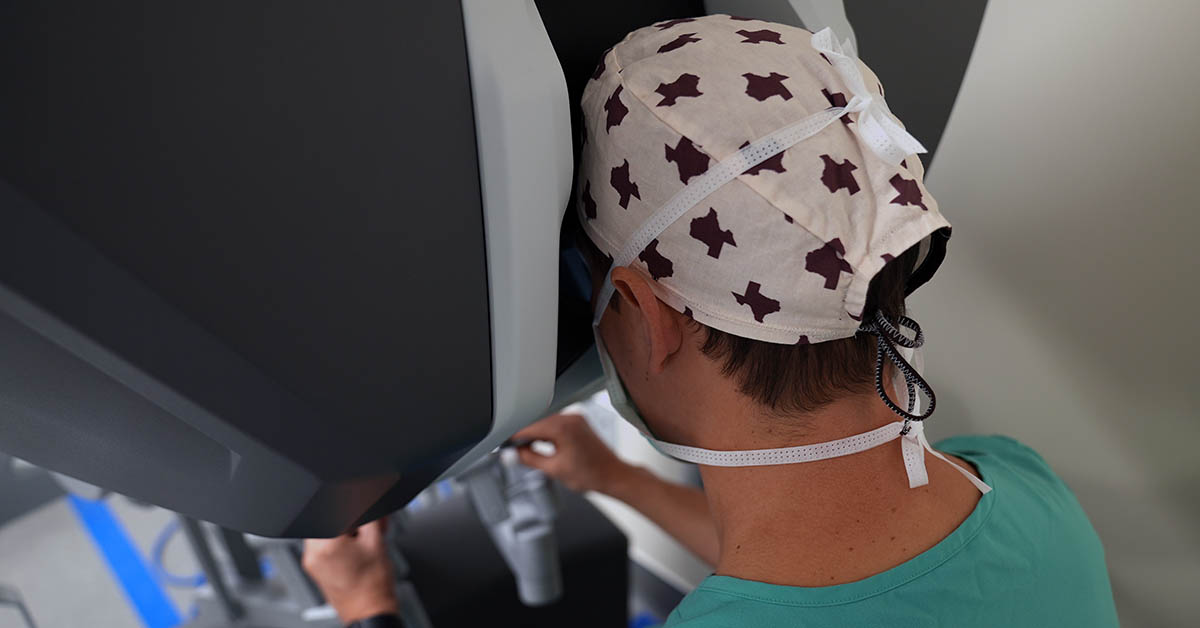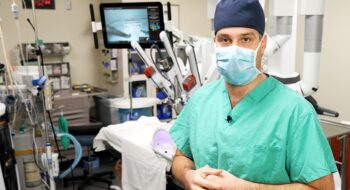Picture this: Your doctor says you need surgery. You immediately expect a lengthy recovery and begin considering the possibilities of infection and pain — but then your surgeon says there’s a better option.
Robotic-assisted surgery is the newest frontier in minimally invasive surgical procedures.
“It allows surgeons to have much better precision and dexterity” than traditional surgical approaches, explains Dr. Mark Witkowski, a general surgeon at Tidelands Health who specializes in robotic-assisted procedures.
Robotic-assisted surgery allows surgeons to perform complex and delicate procedures through small incisions in the body using miniaturized instruments. Tidelands Health, our region’s leading health care provider, recently added a state-of-the-art robotic surgical system at Tidelands Georgetown Memorial Hospital following the success of the approach at Tidelands Waccamaw Community Hospital.
“A lot of people are asking for it now,” Dr. Witkowski says.
Increasingly popular
One study of more than 150,000 patients at 73 hospitals found that robotic-assisted procedures accounted for just 2 percent of all general surgeries in 2012. By 2018, the approach accounted for 15 percent.
Robotic-assisted surgery is a good fit for many types of minimally invasive surgery, Dr. Witkowski says. At Tidelands Health, it’s available for gallbladder, hernia and colon surgeries. Even urological and gynecological procedures such as hysterectomies can be performed using the technology.
Some patients have the misconception that a robot will be performing the surgery, but that’s not the case. With robotic-assisted surgery, the surgeon controls the instruments from a nearby computer console using a high-definition 3D camera to see inside a patient’s body. The camera can magnify the operating field to provide much more detail for the surgeon than the human eye can detect.
Depending on the type of surgery, patients can benefit from reduced recovery times, less pain and blood loss and fewer or smaller scars.
Not for every situation
Not every patient or condition is eligible for robotic-assisted surgery. Your physician can help decide what’s right for you.
People who have had robotic-assisted surgery at Tidelands Health have been pleased with the results, Dr. Witkowski said, and he’s seeing more and more interest.
“It’ll become more common to be the standard for basically any minimally invasive surgery,” he says.
The expansion of the robotic-assisted surgery program is part of a continued commitment at Tidelands Health to meet the health care needs of patients in the fast-growing region by using the latest technology and offering advanced care close to home.
In recent years, Tidelands Health — the area’s largest health care provider — has recruited dozens of specialists in fields ranging from endocrinology and neurosurgery to gastroenterology, secured leading technology and constructed state-of-the-art treatment facilities. In addition, Tidelands Health recently became the state’s first full affiliate of the MUSC Hollings Cancer Network.





